[TRANSCRIPT]
Friends,
As 2021 reaches its conclusion, I’m sharing my reflections after eight months of podcasting and writing.
With the intensity of work now tempered, and we turn our minds to gifts and permissive eating (potential for a religious festival here?), it feels an agreeable time to step away from the incessant news slop of our rotten politics running om and om and Omicron to tell you about my motivations for talking A Load of BS, where I want to take it in 2022, and, importantly, why I want to hear more from you!
Join the community
To truly transform A Load of BS in 2022, I’d like you to be involved. I want to hear your feedback and ideas, know what subjects we should address next, what questions to address in my interviews.
How to do this:
Message me in my feed or directly on Twitter @danielsjross
Comment on any post on my Substack here
Email me directly at danielsjross@gmail.com
Write a guest piece for my bi-weekly Monday BS newsletter. As long as there’s some BS there, the platform is open to your thoughts and ideas. Thank you Pete Weishaupt and Gerald Ashley so far for your wise contributions. A guest piece is typically between 200 to 750 words
Conversations to look forward to in 2022
Over the next few months, I have outstanding guests joining me to talk A Load of BS: Ruby Wax on mindfulness, David Aaronovitch on conspiracy theories, Dr Jesse Bering on taboos, Melissa Hogenboom on motherhood, Jeff Kreisler on personal finance, Dr Dimitris Xygalatas on rituals, Ted Slingerland on alcohol, Guillem Balague on Pep and Maradona, Chris Rawlinson on education and Patrick Fagan on predicting personality.
I’m hugely excited to share these wonderful conversations with you over the coming weeks.
Back to the start
Some background to all this. For many years, I felt the urge to write, to express myself creatively beyond the corporate confines of a conventional career. A career which has taken me down a host of roads, byways and tributaries; from advertising to business school to wealth management to FinTech, InsurTech and corporate venturing. Surely no more natural segue and suffix to that tasty trifle mix than A Load of BS. That’s a little glib, but I needed more.
But where to start? A challenge most writers encounter upon the first impulse to share is how to begin? The inner voice which questions the value of one’s words, assumptions and judgements is ever-present; the normal imposter introspections which we carry. Whether one’s engrossment is philately, technology or toilet seat covers, it’s imperative to hunt for, catch and pounce on an authentic voice. It takes time to single out and mature; it requires experimentation, play and iteration, but once you find those old, comfy socks, when you begin to write unselfconsciously and with brio, it feels natural and free, despite the recurring bumps and jolts.
So this is always a work in progress, but I hope that when you come back for more BS, you feel the snug, homey hug of those favourite cashmere socks on chilly Winter feet. I’m not proposing a sock exchange, but I am inviting your opinions.
Moving from conversations to community enriches A Load of BS immeasurably.
All creative souls worth their salt are honing, perpetually balancing the builder’s spirit level between confidence, clarity and authority at one end and jittery ‘what the f*%k comes next?’ energy at the other. This emotional rollercoaster is indispensable to progress; when the process becomes too readily repeatable and mechanical, some of the magic fades.
Stand atop the slope, skis straight, lean forwards and be very ready to fall. It’s the only way to get the biggest thrills.
Connecting the dots
My interest in behavioural science is longstanding. I had read the popular literature from Danny Kahneman to Dick Thaler to Cass Sunstein and Dan Ariely. My broader reading has always leaned towards stories in which human behaviour, in all its oddity, eccentricity and complexity, is central (e.g. P.G. Wodehouse, Somerset Maugham, William Boyd, Rohinton Mistry, Karl Ove Knausgård, Evelyn Waugh, Graham Greene). Artistically (I stress), I’ve always admired the films of Woody Allen because human relationships, in their awkwardness and with their peccadillos, are dominant and essential. The comedy of John Cleese, in particular Fawlty Towers, has made an indelible impact on me for all its wild mania and sparkling writing. Following on the heels 30 years on is Larry David’s Curb Your Enthusiasm with its bracing political incorrectness and brazen disregard for societal norms. Both anti-heroes, Basil and Larry ask irresistible and seductive social psychology questions; principally, how does our world function when we say what we feel, all the time. Both shows, with protagonists of different motivation, answer with sizzling comedy on a bed of malfunction and failed marriage.
Larry has ‘made it’, is comfortable in his own skin (and loungewear) and sticks two fingers up to pretention and nicety. Basil has not made it, is a snob and social climber, and channels his anger at his hotel guests. Either way, imitating Basil or Larry in real life now and again, while it does come with its own health warning, clears the sinuses on any foggy day.
After interviewing Rory Sutherland about his book ‘Alchemy’, I hit upon the field of enquiry which I wanted to dive far deeper into. Having struggled to find focus in my early podcasts, I connected the dots. A Load of BS was born, the butterfly burst out of the caterpillar and she continues to fly.
A simple manifesto
Talking BS has become integral to my life and I imagine this will be so next year. There is so much to read and learn; but moreover its’s just damn fun and endlessly surprising observing human quirks and foibles; from the extreme Tamil piercing rituals at the Thaipusam Kavadi festival in Mauritius to the daredevil fire walkers in the village of San Pedro Manrique in Spain, from cleaning ladies who make great whiskey tasters to the psychology of taking World Cup penalties.
BS, in all its associated disciplines, opens doors to why we do what we do, or why we indeed do anything. And it takes us from box-tick bias bingo (herding, confirmation, optimism, endowment, hindsight etc.) to obscure, far flung corners and communities such as the climacophiliacs who find sexual arousal from falling down a flight of stairs.
It is worth noting that common decision-making biases are not primarily irrational; in the main they hold important evolutionary origins. Herd instinct for wildebeests or starlings is a strong survival strategy; if animals herd together on the Savannah, it provides security and maximises chances of survival. It becomes irrational in artificial human environments like financial marketplaces where following blindly is not so clever. Our conception of the irrational bias is a 20th century overlay on millions of years of very rational behaviour.
In a roundabout way, I’m saying that I want A Load of BS to be the place to come for very human stories.
These should be held up and signposted with rigorous academic research but above all I’m roused by real and everyday behaviour, conscious or otherwise, that makes us question ourselves, that elicits those ‘Aha’ moments of explicability.
I’m not interested in presenting academic research for its own sake, but rather to open your eyes and ears to less obvious perspectives, to unearth traditions and histories which bubble under the surface of otherwise familiar facets of our lives: the meaning behind London Underground’s original station artwork or the hidden meanings on restaurant wine lists. It’s these treasures which help us understand and empathise with our cohorts and comrades better.
Behavioural Science gives me the canvas to do this and has allowed me to chat with advertising gurus (Rory Sutherland), political strategists (Danny Finkelstein, Marc A. Ross), sports stars (Gary Lineker), sports writers (Henry Winter), finance professionals (Paul Craven, Gerald Ashley), wine connoisseurs (Joe Fattorini), transport system designers (Pete Dyson) and more.
With my weekly podcasts and bi-weekly thought pieces, I want to:
Shine light on the peculiarity, uncertainty and complexity of our existence, and give context and comfort to our associated anxieties and fears
Build a BS community with you around this
Be accessible, entertaining and educational
What I’ve learned
Having never published anything for public consumption before last May, I’ve learned:
To just start, even if imperfectly
That losing subscribers always hurts 😢
That turning an interview into free-flowing, zig-zagging conversation is an artform
Beyond the practical, the podcast research and production process, alongside my writing, has allowed me to place a sharper lens on my own decision making and comprehension of the world, whether that’s how I order a bottle a wine (Joe Fattorini), how I invest money (Paul Craven, Gerald Ashley), how I divide my time (Nir Eyal), how I assess politicians’ manoeuvres (Danny Finkelstein) or how I support my family (Melissa Hogenboom). It is a cliché of the BS academic or student that they are as susceptible to unconscious bias and irrational behaviour as the next person, and I’m no different. Study simply gives one more tools to overcome unconscious urges, to conquer temptation.
I like Jonathan Haidt’s metaphor of the elephant and the rider to explain the two competing sides (emotional and rational) of our brain. Danny Kahneman popularised System 1 and System 2 thinking to deliver the same idea in ‘Thinking, Fast and Slow’, but Haidt’s illustration paints a more colourful picture. Here, the emotional side is the elephant, the rational side is the rider. The rider of the elephant looks like he or she is in charge, but when there’s a disagreement between the elephant and the rider, the elephant usually wins. The rational brain is responsible for planning and direction, but can get paralyzed overthinking things while the emotional brain prefers quick gratification over long term, but gets things done.
Brothers Chip and Dan Heath build on this idea in their book ‘Switch: How to Change Things When Change is Hard’. The rational mind wants a great beach body; the emotional mind wants that Oreo cookie. The rational mind wants to change something at work; the emotional mind loves the comfort of the existing routine.
As we try to make sense of confusion, as we continue to make economically irrational but emotionally sound decisions, the overarching message from my 20+ interviews, recurring time and again, whether addressing rituals, consumer shopping behaviour or election voting choices, is our need to find control in an ever-changing, uncertain world.
Our desire to model everything and assign a risk probability to it is in our nature but looking to the past to predict the future is riddled with complexity. Living through a pandemic heightens the anxiety and search for answers; unfortunately the men in white coats don’t always have them.
We tend to view confusion as a bad thing, but confusion is often at the heart of learning.
Thank you
A Load of BS is made possible with your encouragement and support. I don’t take it for granted since there are legion activities you can indulge in!
This community grows with your continued backing, so if there’s a holiday gift you can give me, it’s to share A Load of BS with friends who you think will get a kick out of it.
You can also find my podcasts on Apple, Spotify et al.
A couple of special thanks to Christian Hunt and Jim O’Shaughnessy for guidance and promotion. Do have a listen also to their excellent podcasts, The Human Risk Podcast and Infinite Loops respectively.
Final thanks go to my editor Nathan Meirinho who I highly recommend for post-production work, and my sponsor CrankWheel for their belief in A Load of BS. As more of us get Zoom fatigue and want simpler ways to engage virtually with colleagues, their screen sharing technology in voice calls is awesome and I encourage you to take up the special offer below.
You simply send a link to the person on the other end of the line and they enter that seamlessly on any browser, any device. No log ins, no registering, no what's my bloody password! CrankWheel is particularly great for those first sales calls or for onboarding new customers. It's really for any business looking to engage with customers more efficiently. I’m personally delighted to be supporting the guys.
A Load of BS subscribers can use CrankWheel unlimited for 2 months by signing up at get.crankwheel.com/loadofbs.
Happy holidays, be well and I wish you a wonderful start to 2022!
Daniel 🎉






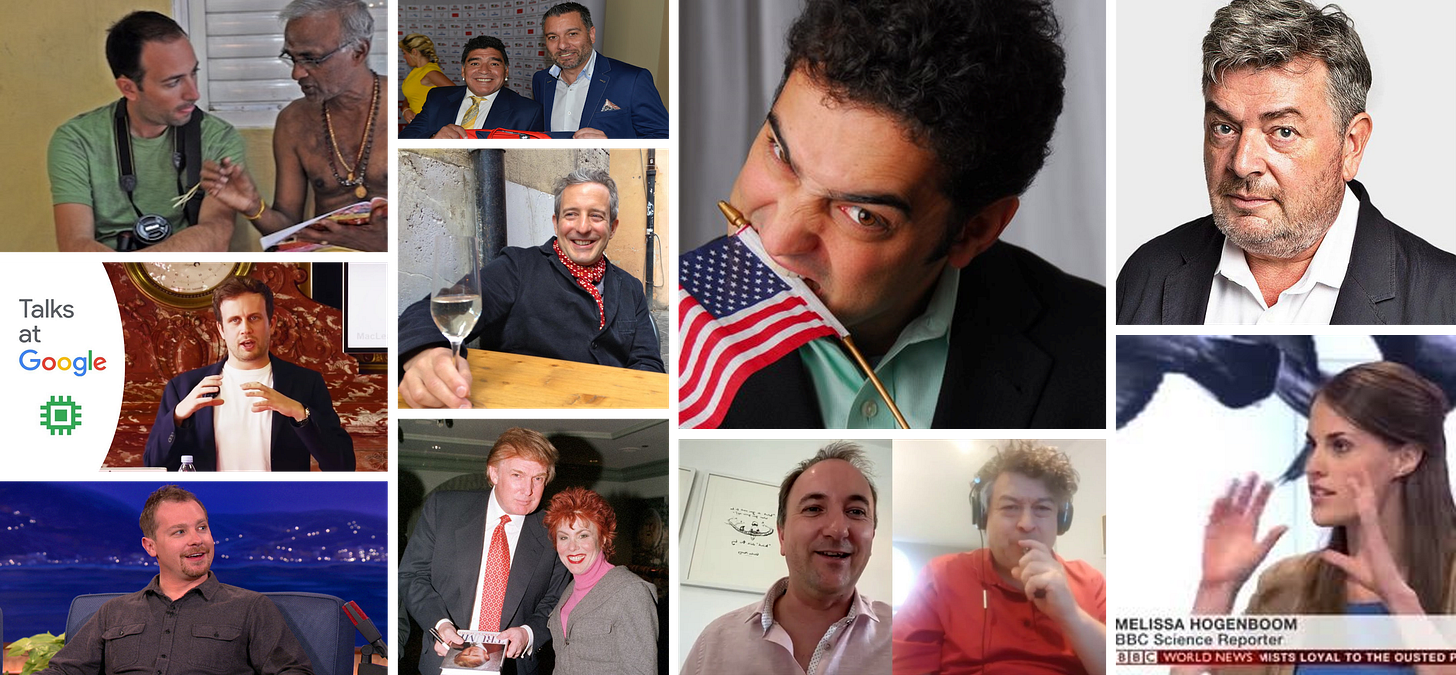








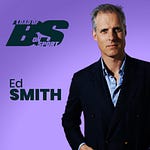

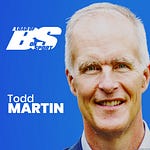
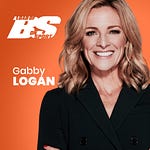
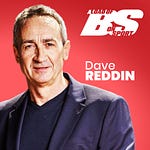

Share this post